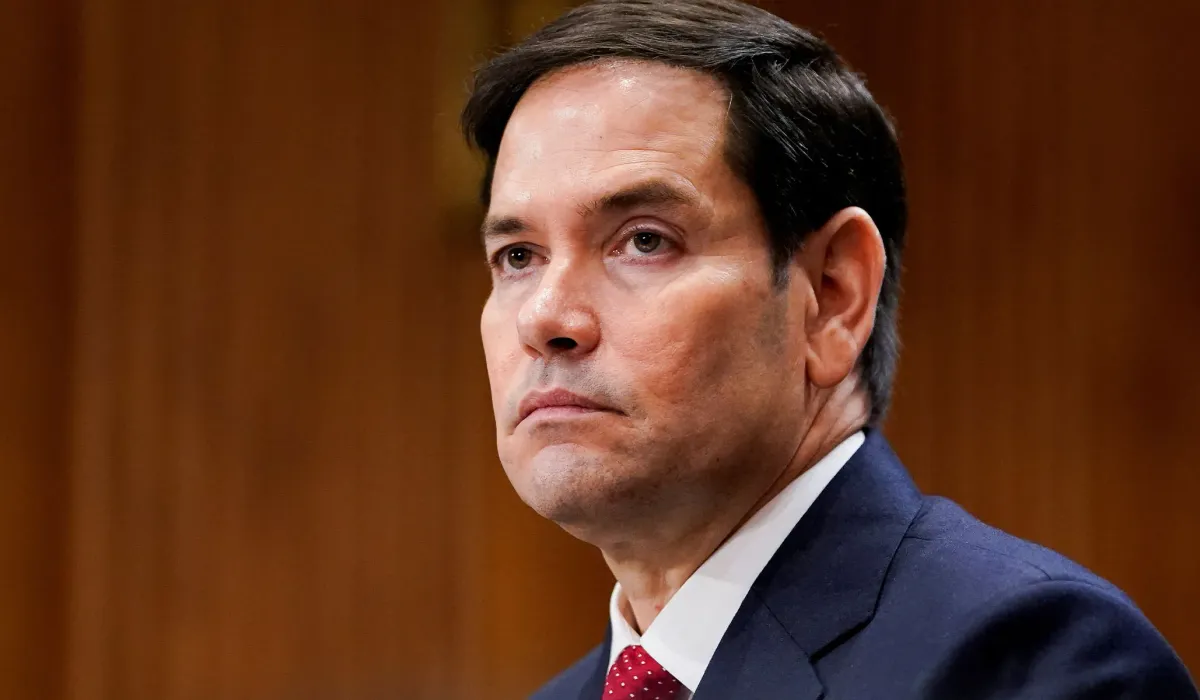Rubio Isn’t Ending Censorship. He’s Ending Oversight
Rubio’s latest screed proves the right’s problem isn’t censorship. It’s accountability.

On April 16, 2025, The Federalist published an op-ed by Senator Marco Rubio titled "To Protect Free Speech, The Censorship Complex Must Die." The piece is less a policy argument than a tantrum in prose, a paranoiac's manifesto dressed in the language of liberty. It reads like a Fox News chyron had a baby with a CPAC PowerPoint and decided to run for office. If you took the words "free speech," beat them with a stick, and then shoved them through a filter of weaponized grievance, you’d land somewhere close to this essay.
Rubio's core contention—that government efforts to monitor foreign propaganda are functionally identical to state censorship of American citizens—is both unserious and deeply manipulative. This isn’t a defense of the First Amendment. It’s a fantasy of impunity, a demand for unilateral narrative control by the political right.
"During his historic comeback campaign in 2024, President Trump vowed to close the book on a dark chapter in America’s constitutional history: the weaponization of America’s own government to silence, censor, and suppress the free speech of ordinary Americans."
Rubio opens with revisionist fiction. There is no evidence of mass-scale censorship of "ordinary Americans" by the federal government. What he's referring to—inter-agency cooperation around election integrity, pandemic information, and foreign propaganda—is not a First Amendment violation. The courts have repeatedly affirmed that private companies choosing to moderate content is not state censorship. But the narrative plays: a heroic Trump rescuing a muzzled populace from a shadowy bureaucracy.
"No matter what name it goes by, the Global Engagement Center is dead. It will not return."
This declaration is less a policy victory than a political stunt. The GEC, originally founded under Obama to counter foreign terrorist propaganda, had evolved into a node for monitoring disinformation. Its alleged crime? Not that it silenced anyone—but that it shined a light on coordinated, often foreign-funded, influence operations. Rubio frames it as Orwellian overreach, but omits that the GEC’s work targeted state-sponsored disinfo campaigns from Russia and China. Killing it doesn’t liberate speech—it invites sabotage.
"Obama’s man in charge at GEC, Rick Stengel, touted his efforts to protect ‘democracy’ while redefining it so that ‘democracy’ came to mean silencing the part of the electorate he doesn’t like."
This is the core accusation: that the political left used institutional power to suppress conservative voices. But Rubio’s proof is tenuous. He relies heavily on the implication that if a disinformation expert critiques Trump, their entire office is illegitimate. The attack on Stengel is a red herring—it dodges the larger question: was the content flagged by GEC actually false or misleading? Rubio never answers this. Because if it was, then the labeling of disinformation was correct.
"GEC tarred not only specific claims as foreign propaganda but also specific users... These lists were sent to social media companies for 'review,' but nobody was fooled — the purpose of this was to pressure private companies in the direction of more censorship and less free speech."
This framing is dishonest. Social media companies are private platforms with terms of service. Coordinating with them on foreign threats isn’t censorship—it’s standard cyber defense. Rubio casts every effort at content moderation as sinister without acknowledging that disinformation campaigns are real, ongoing, and dangerous. He treats platform accountability like it’s government overreach when in fact, it’s often the opposite: government outsourcing responsibility to tech companies.
"The entire 'disinformation' industry, from its very beginnings, has existed to protect the American establishment from the voices of forgotten Americans."
This is the thesis, and it’s pure projection. Disinformation monitoring exists because foreign actors exploit the openness of democratic societies. Russia’s interference in 2016 wasn’t a hoax—it was a confirmed, bipartisan-documented threat. By dismantling institutions designed to respond to that threat, Rubio is not defending liberty. He is clearing the path for manipulation, sowing distrust, and dismantling epistemic safeguards.
The broader implication of this article is chilling. It suggests that any mechanism designed to identify lies, malign influence, or systemic manipulation is itself a threat to freedom. It recasts accountability as tyranny, and expertise as elitism. And most importantly, it seeks to erase the line between legitimate dissent and deliberate sabotage.
The media's complicity in giving oxygen to pieces like this without challenge is part of the problem. Publishing unvetted assertions under the banner of opinion doesn’t make it harmless—it makes it harder for readers to distinguish between narrative and reality. The Federalist knows this. So does Rubio. Which is why this article was never about policy—it was about spectacle.
The censorship complex Rubio invokes isn’t killing speech. It’s protecting truth from being buried under noise. If we destroy that, what we get isn’t freedom; it’s chaos.
The Index is entirely reader-supported. We accept no sponsorships or advertising and are not VC-affiliated.
Now, more than ever, the world needs an independent press that is unencumbered by commercial conflicts and undue influence.
By taking out an optional founding membership, you can help us build a free, accessible, independent news platform firewalled from corporate interests.
